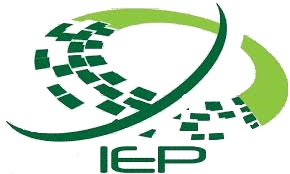
Book Title: Fiqh uz Zakat
Author: Yousuf ul Qardhawi
Publisher: King Abdul Aziz University, Jeddah.
Fiqh-uz-Zakat is a monumental work on Zakat in modern times. Given the importance of the institution of Zakat and Ushr in Islamic economic framework, it is important to realize its full potential in contemporary Muslim world where Muslim majority countries are by and large poorer than the rest of the world. Part of the reason why the full potential of Zakat and Ushr is not realized is because the traditional understanding misses out incorporating contemporary forms of wealth, production and earned incomes consistently in the Zakat net.
Allama Yousuf ul Qardawi filled that vital gap through his masterpiece. It does not merely involve a collection of view of seminal jurists, but provides an engaging academic and analytical discourse so as to facilitate critical and analytical thinking to achieve consistency and justified coverage of Zakat in the contemporary forms of wealth, production and earned incomes.
An important question in large scale industrial establishments is that should all means of production be exempted from Zakat. A small retailer is supposed to pay Zakat on unsold inventory at year-end while factory owners having millions and billions worth of productive machinery are asked to pay Zakat on few liquid assets subject to adjustment of debt. In modern banking system, bigger industrialists are able to take on bigger loans from banks. Their tradable inventory is easily sold to retailers and end users and they reinvest their earning partially or wholly in expansion and thus buying more productive capital as means of production. Allama Yousuf Qardawi writes in Fiqh-uz-Zakat:
“Today’s plants and factories are the productive growing capital. Consequently, we conclude that craftsmen’s tools which the owner uses personally are exempted from Zakat because they are essential for his or her personal needs, but plants and machinery are subject to Zakat. No one can claim that by stating this we stand against the opinion of preceding jurists, since they never expressed an opinion on factories they never saw. If they had seen them, they would have given the same ruling. We are merely applying their standards and criteria to modern times. (Pg. 245, Vol 1)”.
Agricultural produce was a major source of earned income in olden times. Nowadays, there are other modes of earning income, such as rental income, capital gain on financial and real investments, consultancy income, services income and salaries, for instance. Allama Yousuf Qardawi in his book ‘Fiqh-uz-Zakat’ favours deduction at source of earned income as and when it is earned.
In the case of levying Zakat on leftover savings from earned income at year-end, the potential Zakat payer has an opportunity to either spend the surplus wealth or convert it in assets not subject to Zakat just before the Zakat due date. Allama Yousuf Qardawi writes in Fiqh uz Zakat: “This approach results in putting all the burden of Zakat on moderate or thrifty income earners and exempting extravagant spenders (Pg. 260, Vol 1)”.
Allama Yousuf Qardawi contends that nowadays, wealth is stored in many forms. He favours determining an average standard of living and then subjecting asset and wealth beyond needs under Zakat. For instance, if a person owns multiple houses and multiple modes of transport, then, beyond his needs, the extra wealth stored in real estate and means of transport shall be subject to Zakat.
Verse 103 of Chapter Tawba asks Prophet Muhammad (PBUH) ‘Take from their wealth ˹O Prophet˺ charity to purify and bless them…’ If Zakat purifies wealth, then would it not be consistent that it will purify all surplus wealth. Zakat has been extended to currency, financial assets and buffaloes by inferring from the ‘Nass’ and extending the ruling. Hazrat Umar (rta), Hazrat Usman (rta) and Fuquha in past have performed Ijtihad to extend Zakat to contemporary assets and modes of commercial production. Allama Yousuf Qardawi in his book Fiqh-uz-Zakat (Pg. 63, Vol 1) argues that the word ‘Mal’ used in Qur’an and Ahadith is general and can be extended to incorporate contemporary forms of wealth in its meanings.
Most wealth is concentrated with large corporations, industrialists and property owners. However, they remain outside of Zakat and Ushr net if they hold these assets without intention to sale and if such assets represent means of production. If the objective is to purify wealth, would the forms of wealth having high store value and exchange value not come under Zakat? For example, ornaments, luxurious cars and spacious homes beyond regular personal needs as argued by Allama Yousuf Qardawi in his book Fiqh-uz-Zakat (Pg. 63 and 66, Vol 1).
Another important issue is ‘Tamleek’ in disbursement. Is it allowed to pay Zakat to institutions where ownership is not confined privately, but services are provided to the Mustahiqeen from the infrastructure that is built from the Zakat funds? In this regard, Imam Al-Razi (R.A.) writes that ‘to’ indicates ownership, while ‘in’ connotes the purpose of the spending in verse 60 of Chapter Tawba. Allama Yousuf Qardawi argues in ‘Fiqh-uz-Zakat’ that Shari’ah requires that Zakat funds are for the Mustahiqeen. They can be spent on their welfare. Ibn-e-Munir in ‘Al-Intisaf’, a footnote of ‘Kishaf’, also writes that ‘Only the view that Zakat shall be spent for the Mustaheqeen’ is consistent with the word ‘fi’ as well as ‘Laam’ simultaneously.
All in all, it is a thought provoking masterpiece which is a highly vital and successful contribution to make the system of Zakat and Ushr more relevant, robust, strong and consistent. It is important in order to achieve the aims of effective redistribution of income, circulation of wealth and resource transfers from haves to the have-nots. It can also help in reducing income and wealth inequalities and providing social protection and economic empowerment to the poor and vulnerable segments of the society.

